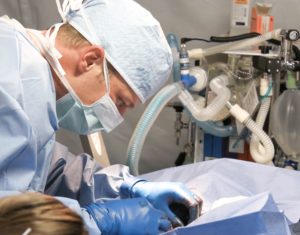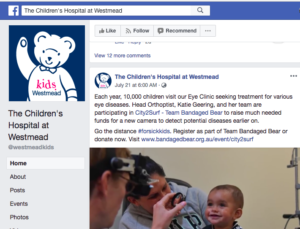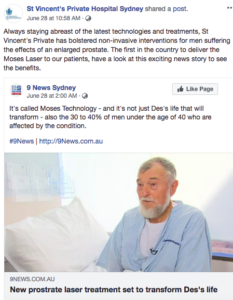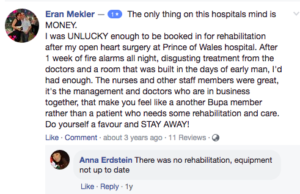By Sym Yeow and Jenni Beattie
Social media for hospitals? they may seem, unlikely bedfellows, however, today health consumers expect to communicate with health institutions such as hospitals via a range of different online platforms.
Convince & Convert recently conducted a media study on 53 of the top hospitals in the USA, and based on this we are able to identify what it takes to produce the best social media content. 
We also know that every social media strategy is unique however these are the key learnings/themes from this recent US report.
Social Media Use for Hospitals – Key Tips
-
The frequency and timing of social media content matters
Your audience isn’t just active on social media during working hours, and therefore the top hospitals adopt a 24/7-engagement approach, with the best hospitals posting at least twice a day on Facebook and Twitter. Always check your platform insights to find out when your audience is online the results may surprise you. Remember the frequency of posting is just the start – listening to your audience is key.
-
Real people engage audiences
What kind of story are your images telling? The best posts on Instagram feature real people, with the majority showcasing at least two faces. Real photos showing behind the scenes, equipment, food or animals gain many comments, whilst stock photos performed the worst on Instagram. Interestingly, stock photos that are easy to use still work effectively on Facebook and Twitter.
-
Photos rate
The most popular media type across all platforms is photos, followed by videos, and then links. Heavily text-based Tweets are more common despite receiving the lowest engagement rate. But we know that text and links are important as they connect your audience to something specific, so combining a link with a preview photo will help drive engagement. Remember the ‘Heart and Mind’ theory in marketing – you need to capture the audience with an engaging emotional image/video then impart impactful and relevant information.
-
Social Media outreach impacts
Responding to your audience’s comments and shares can drive engagement even when you use low reach media types like text or links. Spend time answering queries and on a hospital site, this is vital as the audience will often require real-time engagement and fast response. Resourcing social media is a key area to consider if you are thinking about embarking down this route. Social Media does not run 9 to 5 and neither should your social media management.
-
Social Media hashtags
Almost everyone is using hashtags. In fact, 94% of the best posts on Instagram included multiple hashtags. The posts that gained the most engagement were outside of health-related tags with a collection of mainstream hashtags such as #babiesofinstagram and #valentinesday. Jumping onboard to higher scaled hashtags or industry movements such as #HeartMonth will also contribute to an increase in engagement.
In Summary: The hospitals with the best content engagement don’t always have the largest following. Instead, they create content with their audience in mind, support it with the right media and look outside of a 9-5 posting window. Think about your audience, integrate the key elements into your social media strategy and watch your social media content become more engaging.
Local Hospitals – Social Media
A quick visit to many Sydney hospitals Facebook pages show that some are utilising social media to not only connect with patients but to also showcase innovative practices or innovative technology as shown below:
More interesting was the range of ‘unofficial’ hospital Facebook pages that can be found online. Here are some examples from RPA and Eastern Suburbs Private Hospital. These pages carried a range of posts and reviews from patients with negative reviews (shown below) that go unanswered.
Social media can be used to enhance the patient’s journey from researching a hospital, during the stay and post-recovery when many patients submit reviews and comments online. From customer service through to branding and managing and enhancing the hospital’s reputation, social media can also be a key advantage to a healthcare organisation however left untended it can become a reputational risk for the organisation.
Many hospitals develop their content strategy from a broadcast perspective (simply posting information) but don’t monitor or listen to their page or ‘rogue’ /unofficial’pages for comments and this is an integral part of the whole social media experience.
Looking for additional Healthcare Social Media Information?
Read our Top 10 Tips for Healthcare Social Media infographic
Talk to Digital Democracy if you require a social media strategy for your healthcare organisation or require social media management assistance.
Phone 0423 073 099 or email jenni@digitaldemocracy.com.au


